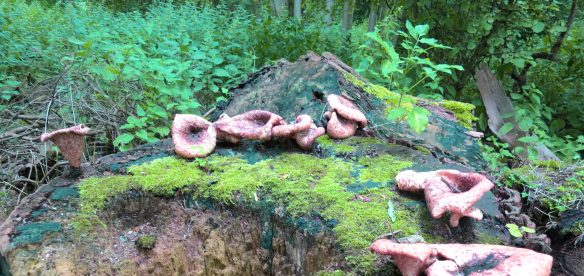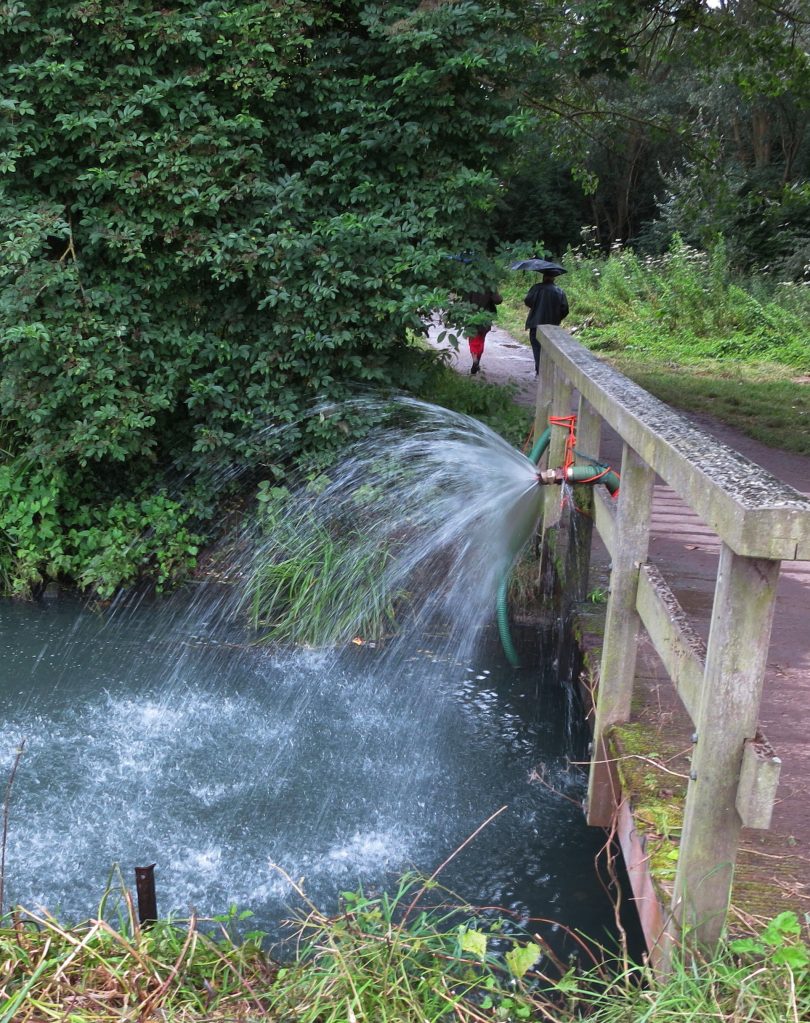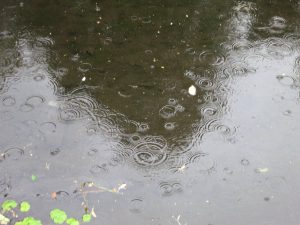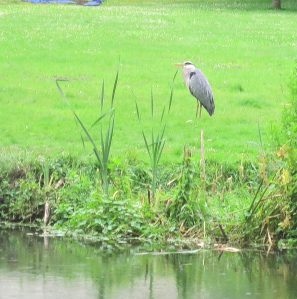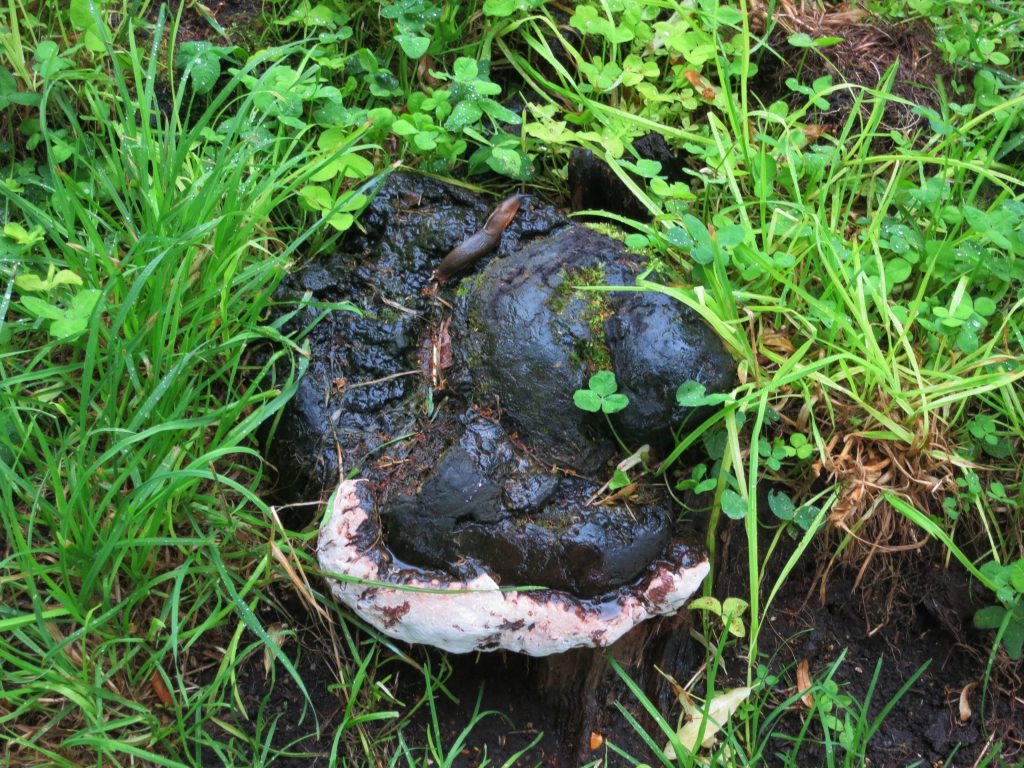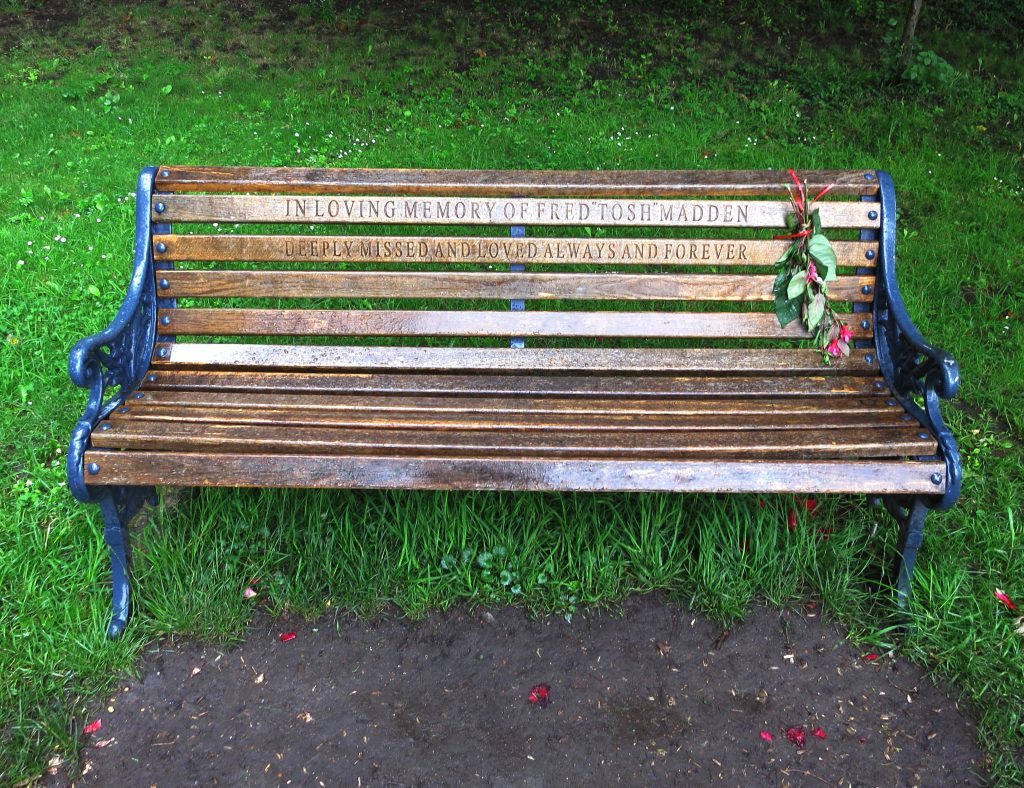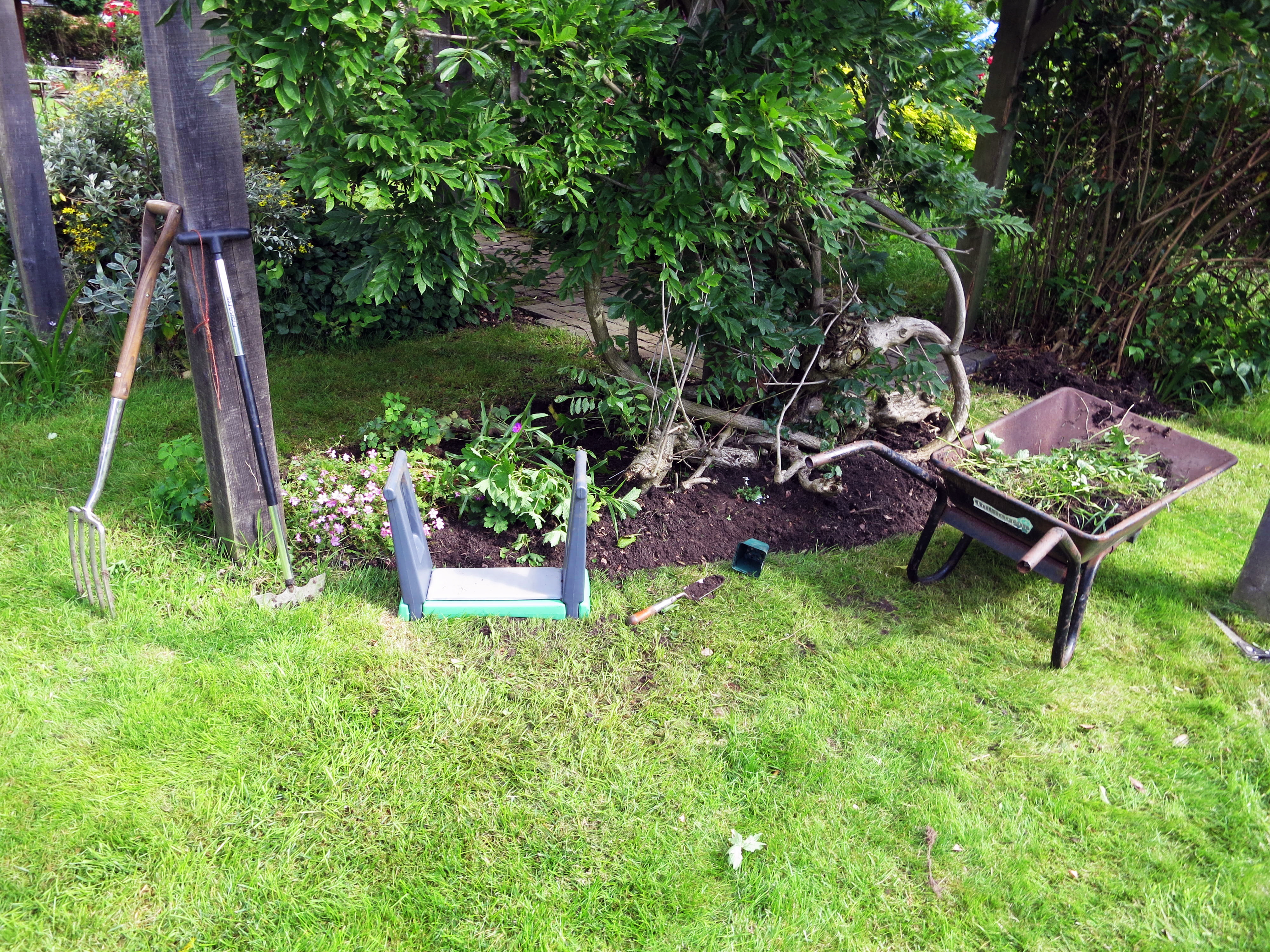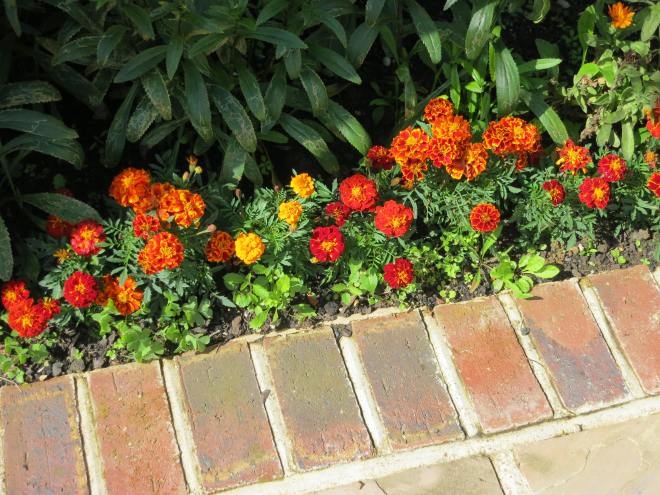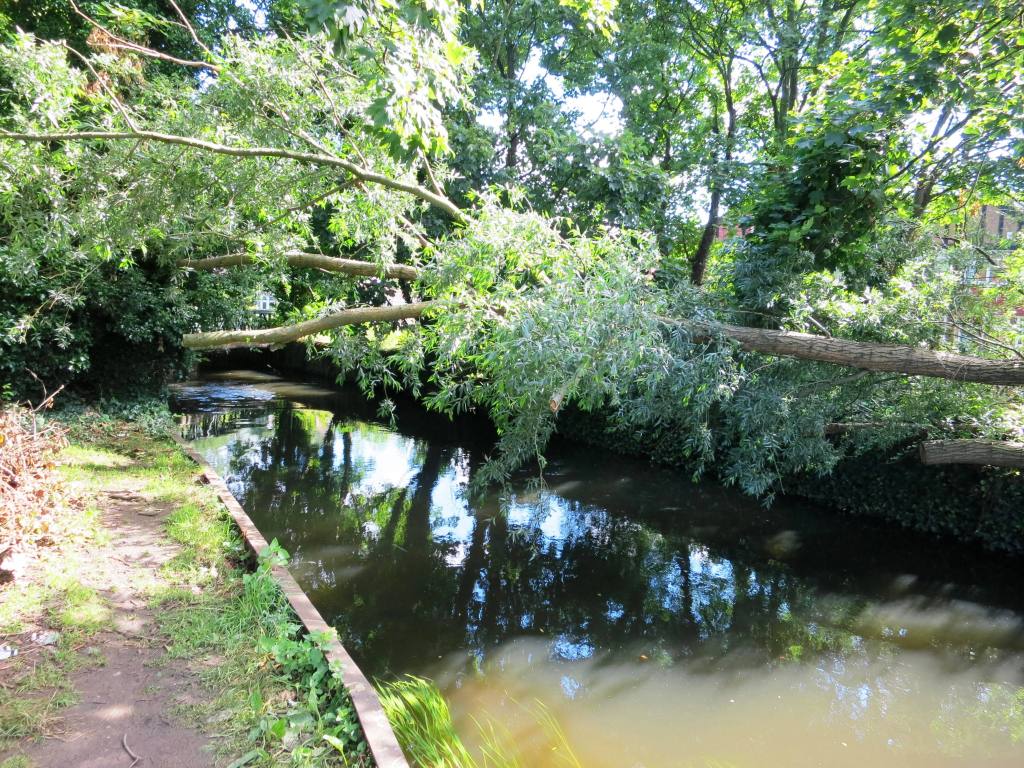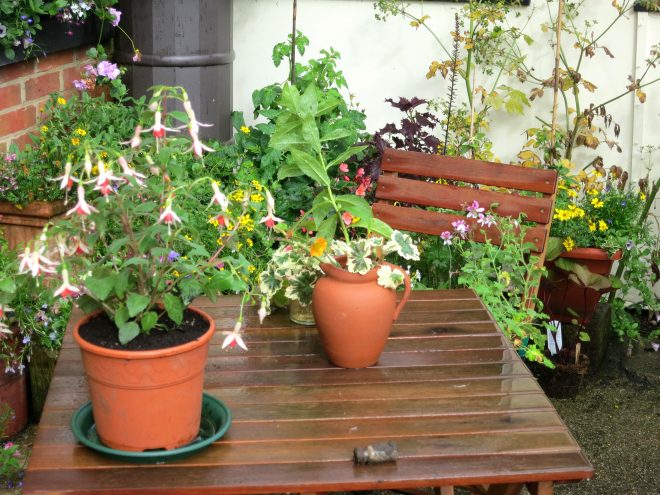A much more pleasant day today was cloudy with occasional glimpses of sun. I decided to visit 18 Bernard Gardens and 79 Ashcombe Road in Wimbledon.
On Maycross Avenue someone had spilled a bag of gems, and in
Woodside, SW19, a child had lost a little bear. In Mostyn Road I met a man exercising a ten year old white German Shepherd dog. Passing Building Blocks nursery in Dundonald Road I heard the taunting chant: ‘Nah nah ne nah nah’, and thought of the infant on the receiving end. Walking up Hartfield Crescent I passed the childhood home of Tom McGuinness, mentioned on 10th. July, who warrants a post of his own sometime.
My days in marine insurance featured in The Drain (6th July).
This was where I met Vivien who I married in 1963.
We began our married life in my parents’ house at 18 Bernard Gardens. This was where she proudly brought Michael home and we lived for a few more months until
we bought 79 Ashcombe Road for £2,500 (no noughts missing). In Ashcombe Road we did our own decorating and I transformed a rubble heap into a reasonable back garden mostly laid to lawn for our little boy to play in.
As a recent toddler he helped me push a roller over the turfs we had laid. This was not to be our home for long. In September 1965 I went out one evening window shopping for a present for Vivien’s 23rd. birthday which was to be in a couple of weeks time. Forty five minutes later I returned home to find her dead on the floor of the sitting room. In less than an hour I had become a single parent.
Years later I was queueing for soap in Floris in Jermyn Street when the young man ahead of me was offered products from Duchy Originals. ‘I don’t want any of that stuff. It goes to charities like unmarried mothers doesn’t it?’, was his response. I leaned forward and said: ‘I’ve been a single parent as it happens.’ ‘I’m bringing mine up on my own’, said the shop assistant. He was gone.
Now I must return to my awful night. Deep in shock I collected Michael from his bed, where, thankfully he had been sleeping; gathered him up in his blankets; and carried him up the road to Bernard Gardens. My mother took us in and eventually put us both to bed. In my case that was not to lead to sleep for another three days, when I had stopped crying. Dad came home a little after our arrival. I can still hear his teardrop hitting my bedding. I will be forever grateful to the gentleman; doctor, official of some sort, I have no idea, I was past taking it in; who visited me the next morning to tell me that death had been instant and Vivien would have known nothing of it. My wife had died in an epileptic fit. I had always known that she could possibly have an accident, but never dreamt that the condition could produce a fatal collapse. To this day I don’t know whether he said it was her heart or her lungs.
Returning from the funeral I was to find a Health Visitor on the doorstep. She had not visited before but was making a check up call following Michael’s birth. He was now fourteen months old. She fled and never came again.
Michael and I were to stay at Bernard Gardens for the next three years. Until he was three Mum cared for him alongside my brother Joseph, just three years older. When Michael was considered old enough he attended a day nursery, where he met his lifelong friend Edward Blakely, and he and I moved to a studio flat at the top of the house which had just been vacated by the Egan family. I could be sole carer with the advantage of family below who babysat when I went out. I was able to continue working, collect him from nursery at the end of the day, and, I thought, cook us a meal. On the evening I began my new routine, never having cooked before, I decided we’d have spaghetti bolognese. I cooked up some mince in a saucepan. No herbs, no spices, no onions, no carrots, no tomatoes, just mince. Hopefully I used some sort of cooking oil, but I wouldn’t be sure. I boiled the spaghetti until it was soggy and served up. I don’t remember whether either of us ate any of it, but I do remember thinking, after I’d tucked Michael up in bed and turned to face the washing up at 9.30 p.m.: ‘Blow this, he gets a meal at the nursery, I’m going to the caff at midday’.
I had, by now, realised I could never stay in an office job. All I needed was a direction. How I found that direction is a further story.
This evening we had another excellent meal in the China Garden where we went with Becky, Flo and Ian.







